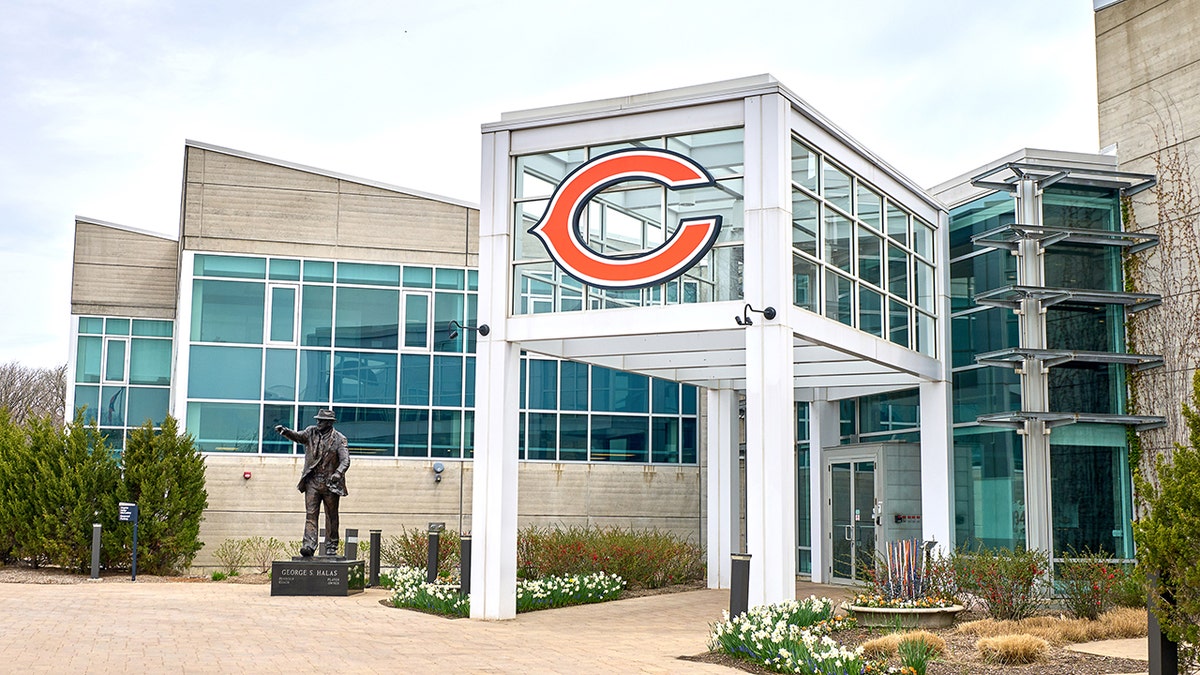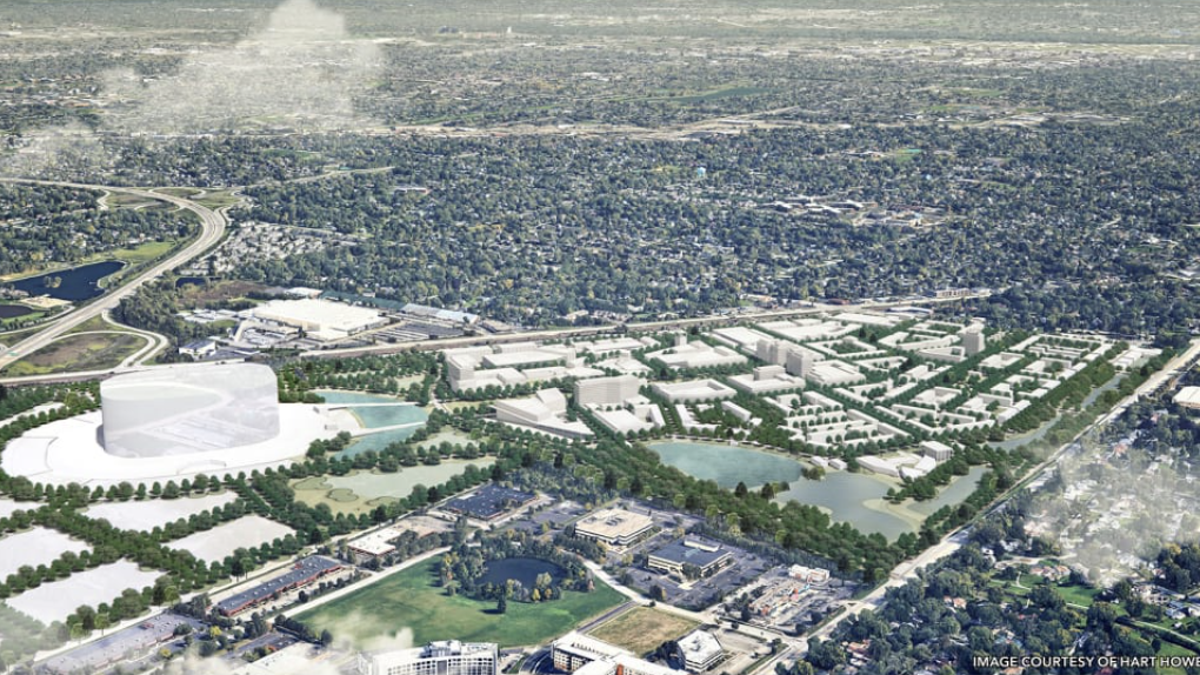Chicago residents furious over city's approval of migrant funding
Fox News political analyst Gianno Caldwell joined 'The Faulkner Focus' to discuss the outrage in Chicago stemming from the $70 million proposal and the growing concern for police officers' safety as they serve in the line of duty.
Gov. J.B. Pritzker, D-Ill. and financial experts are expressing skepticism at the possibility of taxpayer money being used to pay for the Chicago Bears’ proposed new stadium.
There has been hesitation towards the NFL franchise’s plans to spend $4.6 billion on building a new enclosed stadium along with an improved lakefront area, half of which would be paid by the state’s taxpayers.
"The stadium itself would cost $3.2 billion to build, with another $1.4 billion in proposed infrastructure improvements," the Chicago Tribune reported.
BIDEN'S FALSE CANNIBAL STORY DESCRIBED AS A SIMPLE ‘MISSTATEMENT,’ ‘OFF ON THE DETAILS’ BY THE MEDIA

The Illinois governor, lawmakers and financial experts are not sure taxpayers are interested in helping the Bears pay for their proposed new stadium. (Robin Alam/Icon Sportswire via Getty Images)
The Chicago Bears reportedly will pledge $2.3 billion, which includes funds from the NFL.
"But the Bears’ plan includes an additional $2.3 billion in public financing, along with refinancing outstanding debt for prior publicly financed stadium projects for the Bears and White Sox," the Tribune reported.
Taxpayers would reportedly pay for the infrastructure improvements as well as around $1 billion in "new borrowing" to pay for the stadium.
However, considering the cost and how much debt the state already is in over similar projects, the governor, state lawmakers and finance experts believe that the money would be better spent on other priorities.
Local outlet "The Lincoln Courier" reported on Pritzker’s skepticism of the plan.
"It's very important to me with all that the state needs to accomplish that we think about what the priorities are. There are a lot of priorities that the state has, and I'm not sure that is among the highest priorities for taxpayers," the governor said during a recent press conference.
State Senate President Don Harmon, D, sided with Pritzker, the Courier reported.
"At first glance, more than $2 billion in private funding is better than zero and a more credible opening offer. But there's an obvious substantial gap remaining, and I echo the governor's skepticism," Harmon reportedly said.
State House Speaker Emanuel "Chris" Welch, D, said he doesn’t expect the proposal to get enough votes among state representatives to pass.
Joe Ferguson, the president of the Civic Federation, a fiscal watchdog group, told the Tribune that the proposal is expensive, especially considering how much debt the state is already in thanks to similar projects.

An aerial view of the Chicago Bears' preliminary plans for the 326-acre space intended for a new domed stadium at Arlington Park. (Hart Howerton/Chicago Bears)
"There’s not a lot of information necessary to say one of these (plans) actually is viable, or whether it’s a way to take us to the cleaners when we’re already carrying hundreds of millions of dollars of debt for the last time we did something like this," Ferguson stated. "I think Gov. Pritzker has spoken to this exactly right, with a real wariness about public funding of sports stadiums. We need to see reliable, thorough revenue projections for this before we can even open the conversation."
J.C. Bradbury, a sports economist, told The Tribune that the money would be better spent on different projects or not spent by the taxpayers at all.
"The Bears aren’t going to leave one of the most iconic football markets in the country. Tell the Bears to pay for their own damn stadium, and if they don’t like it, to go jump in Lake Michigan," he said.
Democratic Chicago Mayor Brandon Johnson reportedly expressed support for the project.
Johnson said the plan will "result in no new taxes on the residents of Chicago."
CLICK HERE TO GET THE FOX NEWS APP
During a recent press conference at the Bears’ current home, Soldier Field, Chicago Bears President Kevin Warren proclaimed that he and the team are still pushing forward for the new stadium.
"We feel that the time is now. I mean, every year that we wait it's another $150 million to $200 million of increased costs," he said.






















